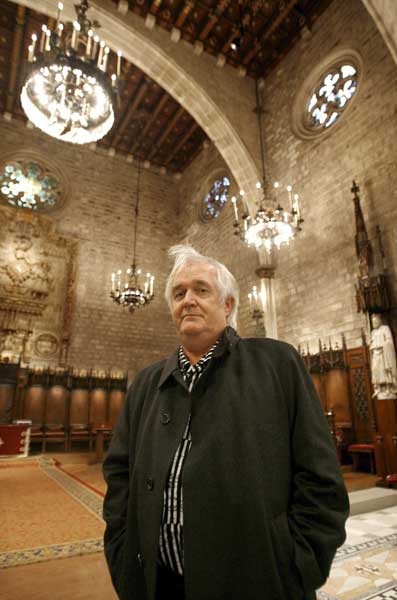Daniel, By Henning Mankell, trans. Steven T Murray

I was 13 years old when I joined my first political demonstration. The year was 1961. We took to the streets to demand an end to the imports of oranges from racist South Africa". Yes, it is Henning Mankell. Almost 50 years later, his radical-left convictions endure and provide scaffolding for his novels. The Man from Beijing, a complex package of colonialist misbehaviour on four continents, is a recent case in point. The police procedurals are usually less "political", but his new Wallander novel (due in English translation early in 2011) is built around Sweden's ambivalent foreign policy during the 1980s.
Daniel (first published in 2000) is very much on-message. The central figure is a displaced African child, a victim of colonisation and war, like Sofia in Mankell's Mozambique trilogy. Set in the 1870s, the brutal heyday of colonial expansion, this is the story of two intersecting destinies: that of Molo, the black 10-year-old from a village in the Kalahari Desert, and of Hans Bengler, the failed Swedish medical student turned amateur explorer.
Despite endless setbacks, Bengler returns from his insect-collecting foray into the Kalahari with a respectable set of specimens. One is still alive: Molo, now called Daniel by his titular father. The would-be scientist and do-gooder did a well-intentioned deal to acquire the boy, the only survivor after an attack by German mercenaries on his village. "Father" wants to civilise Daniel by bringing him up in Sweden.
Their tour of that cold, gloomy, hierarchical country is not a success. Bengler's father has died of syphilis, his childhood home is a ruin and the valuables were sold off to finance his African expedition. By now, the storytelling shifts to Daniel's point of view, which adds the pathos of childishness and displacement to the sad picaresque of the travellers. Bengler is a loser. His naivety, neediness and alcohol dependence mean he can't hang on to the cash he earns by showing off his exotica, including Daniel. When the boy's black skin becomes a dangerous embarrassment, he is dumped on kindly but uncomprehending foster parents. Solitary and isolated, Daniel obsesses about getting back home, increasingly losing touch with reality.
In an epilogue, Mankell describes going to the Kalahari to trace the real Molo. He meets a group of desert nomads, finds a faded photograph and decides to write the novel about Daniel ("in the lions' den"). It seethes with anger at colonialism and oppression of vulnerable others on grounds of race or gender, age or mental "normality", and at perfidious professionals and fraudulent business folk. But Mankell is a good writer of fiction and Daniel an engrossing story, with a real sense of pace and adventure, illuminated by empathy with the bewilderment and longing of a clever, lonely child.
Join our commenting forum
Join thought-provoking conversations, follow other Independent readers and see their replies
Comments
Bookmark popover
Removed from bookmarks